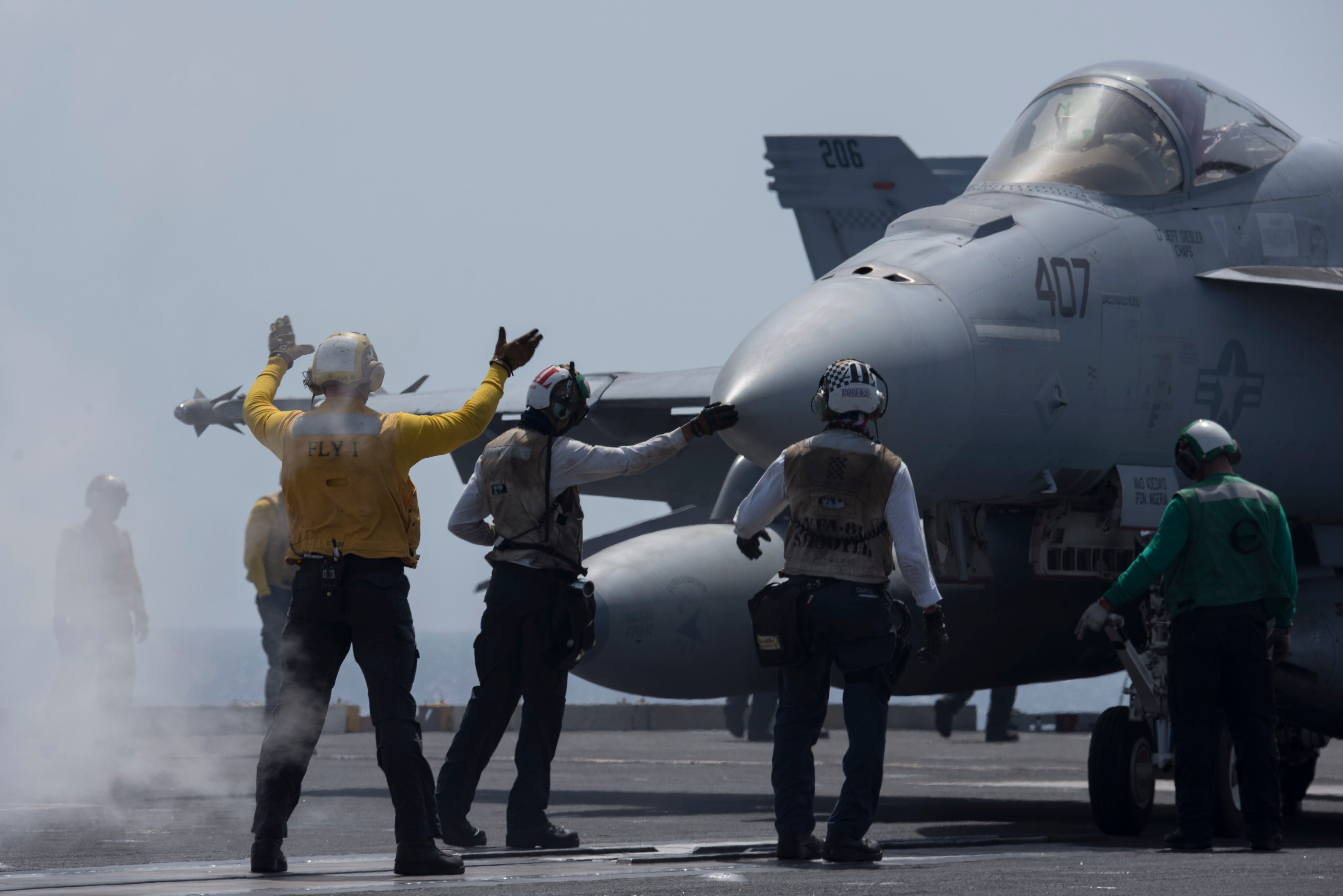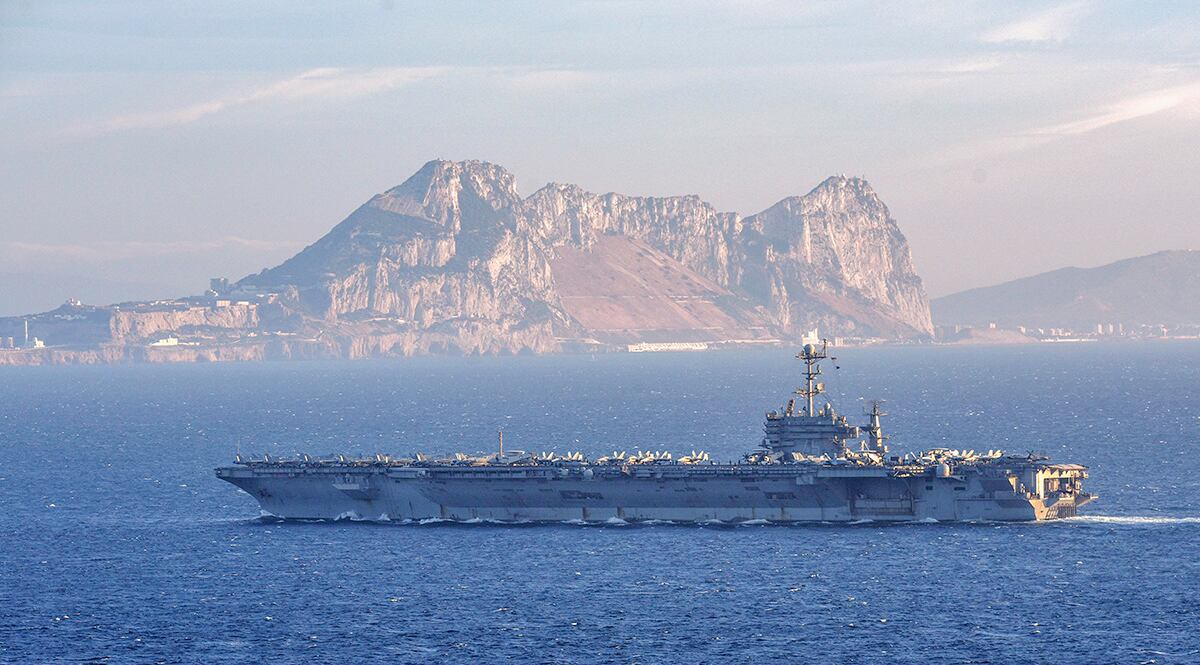After the fall of the Berlin Wall and the collapse of the Soviet Union, the Atlantic Ocean became an afterthought for many military leaders.
America’s naval forces pivoted toward other missions and have spent much of the post-9/11 era focused on terrorism and insurgencies in places like Afghanistan and Iraq.
But as Russia’s rising military reasserts itself and Chinese forces continue their ascent, the Navy’s top officer sounded off this week about the Atlantic’s return to geopolitical relevance.
Speaking to Voice of America, Chief of Naval Operations Adm. John Richardson warned that Chinese ships are regularly underway in the North Atlantic. And Russia’s underwater fleet hasn’t been this active in those waters in a quarter century.
“Even five years ago, we wouldn’t have seen anything like this,” Richardson said.
RELATED

Frank disclosures like CNO’s are a notable break from the past, according to Bryan Clark, a retired submariner who now serves as a senior fellow at the Center for Strategic and Budgetary Assessments.
“The Navy has not been very open about this in the past,” he said in an email. “Although the Russian and Chinese naval presence is not robust or continuous, it is a potential threat in an area the Navy had considered to be a safe backyard.”
At the same time, Secretary of Defense James Mattis said this week that he wasn’t too worried about the Russian boats.
“We watch all submarine activity,” the retired Marine general said. “I’m not concerned about it.”
The Chinese navy now enjoys a global reach and is “ready and capable,” Richardson told VOA, adding that Beijing’s fleet is “certainly a pacing competition for us in terms of the naval threat.”
Russian subs have reportedly increased their activity around vital undersea data cables in the North Atlantic, a move that NATO officials view with alarm.
Along those cables flow the internet and other electronic communications connecting North America with Europe.
“We are now seeing Russian underwater activity in the vicinity of undersea cables that I don’t believe we have ever seen,” Rear Adm. Andrew Lennon, NATO’s submarine force commander, told the Washington Post in December. “Russia is clearly taking an interest in NATO and NATO nations’ undersea infrastructure.”
An increase in Russian and Chinese activity likely explains increased Navy operations in the Atlantic, such as the recent deployment of the carrier Harry S. Truman, Clark said.
Leadership disclosing such concerns may be part of an effort to convince the public of the issue’s importance, Clark said.
“Publicly discussing Chinese and Russian operations may help Navy make the case for a larger fleet to support an increase in Atlantic presence and posture,” he said.
In response to this new emerging Atlantic reality, Richardson announced in May that the Navy would re-establish the 2nd Fleet to better cover those waters.
“As we’ve seen this great power competition emerge, the Atlantic Ocean is as dynamic a theater as any and particularly the North Atlantic,” he said in May. “So, as we consider high-end naval warfare, fighting in the Atlantic, that will be the 2nd Fleet’s responsibility.”
Speaking with VOA this week, Richardson also said sailors are having to defend against Russian jamming devices while underway, like the ones U.S. ground forces have faced in Syria.
Electronic warfare can collapse everything from communications to navigation systems.
“These disruptive technologies…are really going to be decisive in the future fight, and we’ve got to make sure that we’re investing in those as well,” Richardson was quoted as saying.
The U.S. Navy has “traditionally been very capable” in the electronic warfare field, Clark said. “But the operating concepts and capabilities the Navy uses today may not be enough to overcome the growing sophistication and capacity of Chinese or Russian missiles and sensors,” he said. “The Navy will need to tap into artificial intelligence, networking and unmanned systems for future electronic warfare operations.”
Geoff is the managing editor of Military Times, but he still loves writing stories. He covered Iraq and Afghanistan extensively and was a reporter at the Chicago Tribune. He welcomes any and all kinds of tips at geoffz@militarytimes.com.




